Life, Earth And Space
-
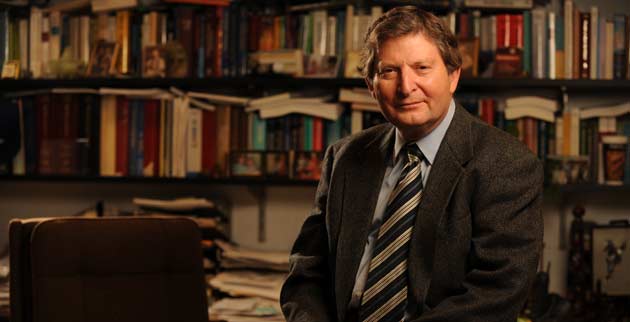
Vanderbilt nuclear physicist elected to European academy
Physics professor Joseph H. Hamilton has been elected as a member of the Academia Europaea, a non-governmental association that serves as a European academy of arts and sciences. Read MoreDec 8, 2011
-
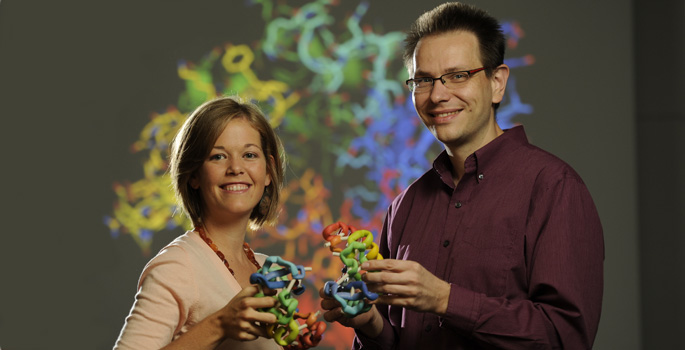
Creation of the largest human-designed protein boosts protein engineering efforts
A team of Vanderbilt chemists have designed and successfully synthesized the largest artificial protein using a new approach that greatly expands scientists’ ability to create proteins unknown in nature. Read MoreNov 15, 2011
-

Listen: Making astronomy meaningful
Professor of Astronomy David Weintraub wanted his students to remember more of what they learned in his introductory class than the answers to typical questions on a quiz show. That was a strong impetus for his book How Old Is The Universe? It strives to make astronomy understandable… Read MoreOct 25, 2011
-

Robot biologist solves complex problem from scratch
A team of scientists has taken a major step toward developing robot biologists. They have shown that their system, the Automated Biology Explorer, can solve a complicated biology problem from scratch. Read MoreOct 13, 2011
-

Taking introductory astronomy beyond Jeopardy and Trivial Pursuit
Astronomer David Weintraub has given introductory astronomy a “CSI” format by following the scientific evidence that gives us the age of the universe and has put this in a popular science book. Read MoreOct 7, 2011
-

New technique maps twin faces of smallest Janus nanoparticles
Vanderbilt chemists have developed the first method that can rapidly and accurately map the surfaces of tiny particles that possess two chemically distinct faces. The findings have broad potential applications ranging from drug delivery to video displays. Read MoreSep 26, 2011
-
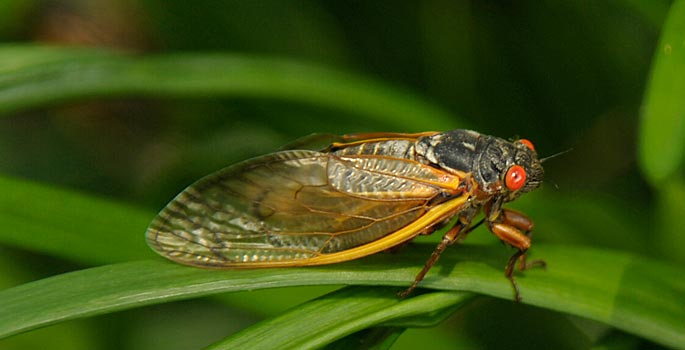
Audiologist measures sound of Music City’s ‘loudest voices’
Vanderbilt audiologist measures sound levels of cicadas and discusses how the insect’s distinctive noise can impact one’s hearing. Read MoreMay 25, 2011
-
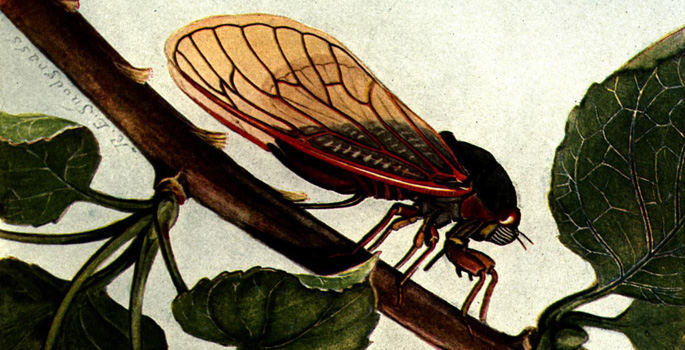
What scientists know about cicadas
Periodic cicadas, like those currently emerging in Middle Tennessee, play an important role in the local ecosystem. Read MoreMay 19, 2011
-
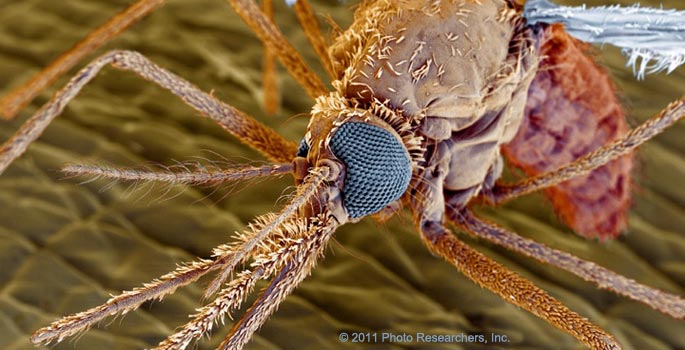
New insect repellant may be thousands of times stronger than DEET
Discovery of a new class of insect repellant raises the possibility of formulations that are thousands of times more effective than current repellants. Read MoreMay 9, 2011
-
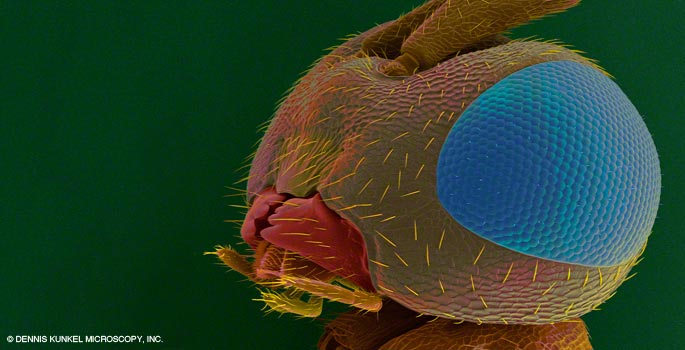
Could bacterial hitchhikers influence formation of new host species?
Vanderbilt researchers are exploring what role, if any, bacteria play in environmental diversity, with the aim of answering one of biology's most fundamental questions. Read MoreMay 5, 2011
-

Sleep strategy used by night nurses throws off their circadian clocks
As many as 25 percent of hospital nurses use sleep deprivation to adjust to working on the night shift, the poorest strategy for adapting their internal, circadian clocks to a night-time schedule. Read MoreApr 14, 2011
-
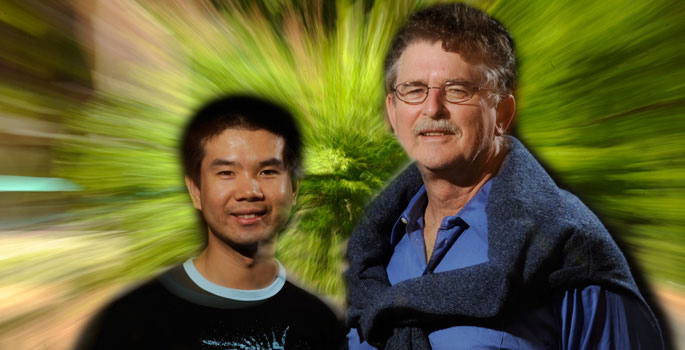
Large Hadron Collider could be world’s first time machine
Prof. Thomas Weiler, right, and graduate fellow Chui Man Ho (John Russell / Vanderbilt) If the latest theory of Tom Weiler and Chui Man Ho is right, the Large Hadron Collider – the world’s largest atom smasher that started regular operation last year – could be… Read MoreMar 15, 2011
-
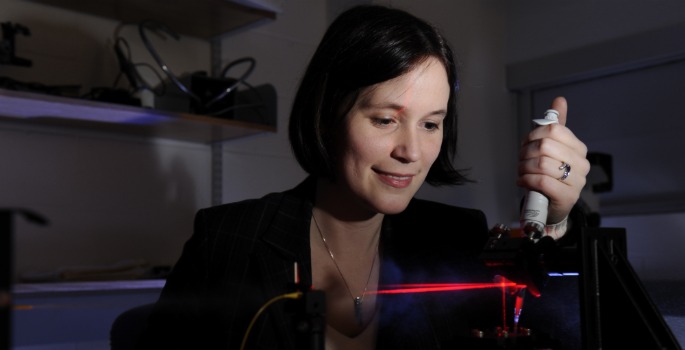
New laser technique opens doors for drug discovery
A new laser technique can measure interactions between proteins tangled in a cell's membrane and a variety of other biological molecules: extremely difficult measurements that can aid the process of drug discovery. Read MoreMar 14, 2011
-
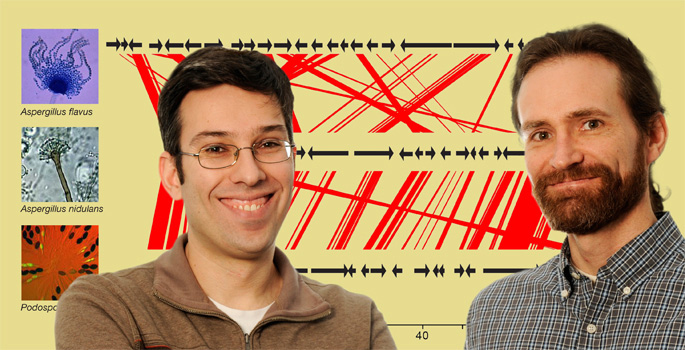
Discovery of jumping gene cluster tangles tree of life
Since the days of Darwin, the “tree of life” has been the preeminent metaphor for the process of evolution, reflecting the gradual branching and changing of individual species. The discovery that a large cluster of genes appears to have jumped directly from one species of fungus to another, however,… Read MoreFeb 4, 2011
-
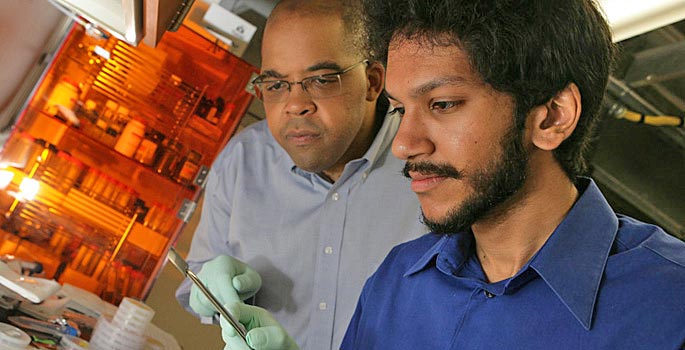
Tuning graphene film so it sheds water
Physicist James Dickerson, left, and graduate student Saad Hasan (Photo by Daniel Dubois) Windshields that shed water so effectively that they don’t need wipers. Ship hulls so slippery that they glide through the water more efficiently than ordinary hulls. These are some of the potential applications for graphene, one of… Read MoreFeb 1, 2011
-

Vanderbilt’s role in largest digital sky image
The Sloan Digital Sky Survey-III collaboration, which includes Vanderbilt University, has resulted in a picture of the sky so big that it would take 500,000 high-definition TVs to view it at full resolution. The color image contains more than a trillion pixels and covers about one-third of the entire sky. Read MoreJan 13, 2011
-

Seven Vanderbilt University Faculty Honored by AAAS Scientific Society
Seven Vanderbilt University faculty members have been elected fellows of the American Association for the Advancement of Science, an honor bestowed upon them by their AAAS peers. They are among 503 AAAS members from around the country who achieved this honor because of their distinguished efforts to advance science… Read MoreJan 12, 2011
-
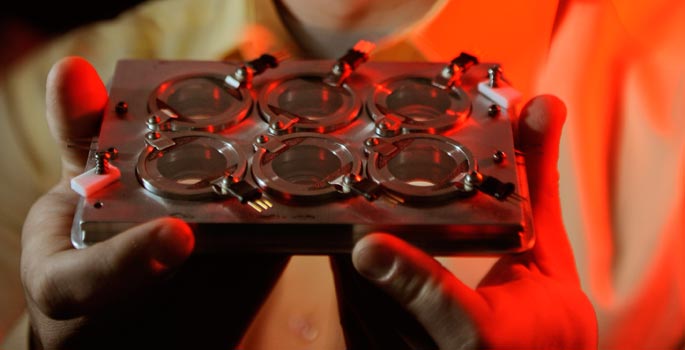
Babies’ biological clocks dramatically affected by birth light cycle
Graduate student Chris Ciarleglio who performed the study in the McMahon Lab that found the circadian clock in mammals is imprinted by the day/night cycle when an individual is born. The finding may help explain why people born in the winter at high latitudes are at greater risk for seasonal… Read MoreDec 6, 2010
-
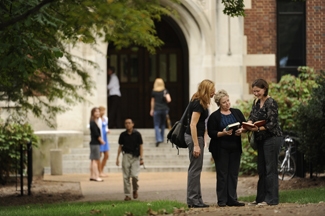
New NRC report provides data on 31 Vanderbilt doctoral programs
A new report from the National Research Council offers insights into 31 doctoral programs at Vanderbilt University, and finds the programs to be competitive with those at other top research institutions in the United States. The report is based on data collected for the 2005-2006 academic year… Read MoreSep 28, 2010
-

Scientific team receives award for networking toolkit
Vanderbilt Professor of Physics Paul Sheldon heads a multi-institutional team that has received an Internet2 award for a networking system that they have developed to make it easier to move and store mountains of digital data. Read MoreApr 29, 2010